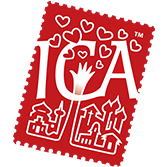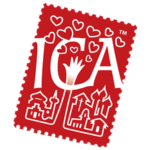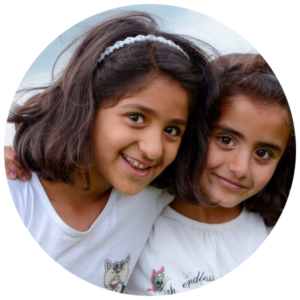Refugee Foster
Care
Refugee Foster
Care
Refugee Foster Care, also known as
Unaccompanied Refugee Minor Foster Care,
is taking in a child or youth who have been separated
from their families due to war, conflict, natural disaster,
or abuse by caregivers who were meant to protect them,
typically from another country.
Refugee Foster Care, also known as Unaccompanied Refugee Minor Foster Care, is taking in a child or youth who have been separated from their families due to war, conflict, natural disaster or abuse by caregivers who were meant to protect them. These situations create upheaval in their lives forcing them to flee from countries in Central America, Africa, the Middle East and Southeast Asia. Each refugee or unaccompanied refugee minor has a different story, but the love and support you can provide will change your and their life forever.

“A little background. I’m originally from Honduras. I now have two daughters.
I was raised by my mother and my grandmother; I have 4 sisters.
When I decided to go to America, I was 15 years old. I had never left my country, so my trip was a new adventure. When I left Honduras, I didn’t know what my destination was. The trip was a month and I had to travel by train. I spent a few days without eating so my journey was hard and difficult, but despite that long and difficult adventure, I learned a lot about life.
My experience in the United States has been kind of strange and good. I could say I’ve met good people, but I have also had to deal with people who don’t like Latinos. It’s understandable because in the world there are good people and bad people too, but I’m lucky because I have known more good people than bad people.
Not all of us are fortunate to have loving parents and family who take care of us. When we look for love or understanding, it is difficult to think that someone else could love us because if our own family did not love us, how will a stranger person love us? This is why we close our heart and we get angry and we do not let anyone in, so each young immigrant has a different problem. And the only thing they need is people who make them feel loved and who interact with us, include us, who love and support without judging who we are or were.
I have gone through difficult stages, but the time I spent with ICA has been good. They have given me hope and they helped me a lot and I have gotten well. I am grateful to all of them – ICA is always available for help and I am very encouraged by my progress and how I’ve learned new things.
It is difficult to help young people like us, not all of us are responsible, respectful, and educated, but I believe that every person deserves a second chance because sometimes we only look at the bad things about people without knowing their history. In my experience, there have been families from ICA that were willing to help youth like me, I am very grateful for their support.
Thank you to all the people who help us young people and people in these situations.”
What do foster parents say about the benefits of fostering a refugee or unaccompanied child?
“Sense of being a real help to someone in profound and life-changing ways on a day to day basis is tremendously rewarding.”
“Being able to introduce a child to so many new things and see it through their eyes.”
“Prepare to be in it for the long haul. Have fun with the child and give yourself time to grow to love them. Invest all you can into them because if you stay with them, your investment stays with them.”
Foster Families Urgently Needed
Join ICA in our mission to provide vulnerable youth with the opportunity of living
in family environments, which are essential for their development and well-being.
Let us know how we can better assist you.
Join ICA in our mission to provide vulnerable youth with the opportunity of living in family environments, which are essential for their development and well-being. Let us know how we can better assist you.





PUBLIC COMMENT OPPORTUNITY, The Intercountry Adoption Accreditation and Maintenance Entity (IAAME), a national accrediting entity designated by the US Department of State to provide Hague Accreditation and Approval, invites the public to provide comment on intercountry adoption service providers seeking Hague Accreditation, Approval or Renewal. You are invited to provide comments through the U.S. Department of State – Bureau of Consular Affairs website: https://travel.state.gov/content/travel/en/Intercountry-Adoption/about-adoption-service-providers/hague-complaint-registry.html

PUBLIC COMMENT OPPORTUNITY, The Intercountry Adoption Accreditation and Maintenance Entity (IAAME), a national accrediting entity designated by the US Department of State to provide Hague Accreditation and Approval, invites the public to provide comment on intercountry adoption service providers seeking Hague Accreditation, Approval or Renewal. You are invited to provide comments through the U.S. Department of State – Bureau of Consular Affairs website: https://travel.state.gov/content/travel/en/Intercountry-Adoption/about-adoption-service-providers/hague-complaint-registry.html




